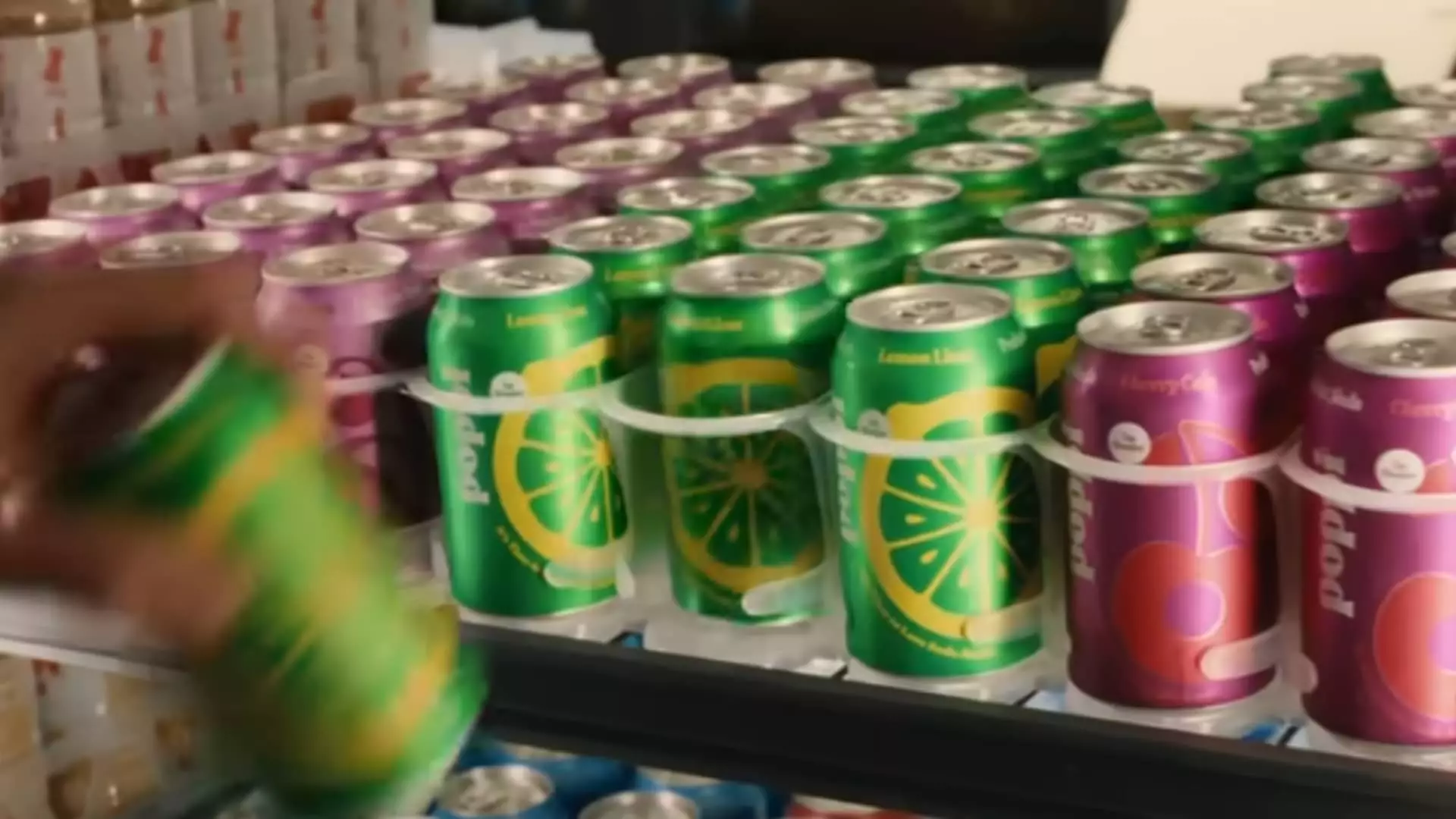In a bold move that surprised many observers, PepsiCo announced its acquisition of the prebiotic soda brand Poppi for a staggering $1.95 billion. As traditional soda consumption wanes, the emergence of health-oriented beverages like Poppi has created a tangible chasm between aging giants and innovative newcomers. This deal epitomizes a growing trend: consumers are no longer satisfied with just a sugary drink; they seek health benefits inherent in their fizzy delights. Yet, the growth of prebiotic sodas also raises questions about the sustainability of such a trend and whether big corporations like PepsiCo can truly align their missions with evolving consumer health goals.
Poppi’s Potential and Pitfalls
PepsiCo’s strategy involves significant financial outlays, factored down to a net of about $1.65 billion after tax benefits. This acquisition, while impressive in numbers, highlights a crucial dilemma—can Pepsi reconcile its identity as a soda conglomerate with the health-centric aspirations projected by Poppi? After all, Poppi’s drink mix, which includes apple cider vinegar and a mere five grams of sugar, symbolizes a movement away from the very essence of sugary sodas that Pepsi has traditionally peddled. Adding irony to the mix, Poppi has also faced legal challenges concerning health claims, now settling a class-action lawsuit for $8.9 million. This raises fundamental questions about the brand’s transparency and overall credibility, yet it seems that their meteoric rise has blinded PepsiCo to these red flags.
The Competitive Landscape
Amidst this jockeying for market share, rival brands like Olipop have also captured significant attention, boasting a valuation of $1.85 billion. PepsiCo’s eagerness to acquire Poppi suggests a potential miscalculation; can they genuinely integrate this newly acquired brand into their existing portfolio without diluting its unique attributes? The prebiotic soda market is undoubtedly in a stage of dynamic growth, and fierce competitors like Olipop are not just observing from the sidelines. They’ve attracted attention themselves, with industry giants also sniffing around for potential acquisitions. This increased competition may turn Pepsi’s chance for growth into a double-edged sword.
Consumer Expectations and Brand Authenticity
Yet, a fundamental element still remains unaddressed: the challenge of consumer expectations. As the health revolution progresses, consumers are educated and vigilant. They desire brands that embody authenticity and integrity—a trait that will likely be scrutinized more than ever as Poppi is absorbed into Pepsi’s mainstream strategy. Can the essence of what made Poppi desirable be retained after its integration with a massive corporation? Brand dilution is a real risk in such scenarios, as larger entities often face backlash from loyal customers who feel abandoned.
In this potent mix of opportunity and risk, PepsiCo’s corporate maneuvering reflects an industry at a crossroads. The acquisition is positioned to elevate Pepsi among more health-conscious consumers, but whether it will succeed or crumble under the weight of corporate bureaucracy and litigation shadows remains to be seen. As the beverage landscape evolves, all eyes will be on how Pepsi navigates this precarious journey.

